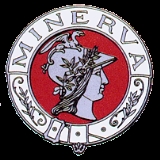
Max Planck Institute for Bioinorganic Chemistry
Encyclopedia
The Max Planck Institute for Bioinorganic Chemistry is a scientific
research
facility located in the German
town of Mülheim
, northeast of Düsseldorf
. It is named after physicist
Max Planck
. It was first part of the Max Planck Institute for Coal Research
and then became independent under the name of Max Planck Institute for Radiation Chemistry in 1981. It was renamed to Max Planck Institute for Bioinorganic Chemistry in 2003. It is one of 80 institutes in the Max Planck Society
(Max Planck Gesellschaft).
Science
Science is a systematic enterprise that builds and organizes knowledge in the form of testable explanations and predictions about the universe...
research
Research
Research can be defined as the scientific search for knowledge, or as any systematic investigation, to establish novel facts, solve new or existing problems, prove new ideas, or develop new theories, usually using a scientific method...
facility located in the German
Germany
Germany , officially the Federal Republic of Germany , is a federal parliamentary republic in Europe. The country consists of 16 states while the capital and largest city is Berlin. Germany covers an area of 357,021 km2 and has a largely temperate seasonal climate...
town of Mülheim
Mülheim
Mülheim an der Ruhr, also called "City on the River", is a city in North Rhine-Westphalia in Germany. It is located in the Ruhr Area between Duisburg, Essen, Oberhausen and Ratingen...
, northeast of Düsseldorf
Düsseldorf
Düsseldorf is the capital city of the German state of North Rhine-Westphalia and centre of the Rhine-Ruhr metropolitan region.Düsseldorf is an important international business and financial centre and renowned for its fashion and trade fairs. Located centrally within the European Megalopolis, the...
. It is named after physicist
Physicist
A physicist is a scientist who studies or practices physics. Physicists study a wide range of physical phenomena in many branches of physics spanning all length scales: from sub-atomic particles of which all ordinary matter is made to the behavior of the material Universe as a whole...
Max Planck
Max Planck
Max Karl Ernst Ludwig Planck, ForMemRS, was a German physicist who actualized the quantum physics, initiating a revolution in natural science and philosophy. He is regarded as the founder of the quantum theory, for which he received the Nobel Prize in Physics in 1918.-Life and career:Planck came...
. It was first part of the Max Planck Institute for Coal Research
Max Planck Institute for Coal Research
The Max Planck Institute für Kohlenforschung is a chemical research institute located in Mülheim an der Ruhr, Germany. The institute is part of the Max-Planck-Gesellschaft, a network of scientific research institutes mainly located in Germany...
and then became independent under the name of Max Planck Institute for Radiation Chemistry in 1981. It was renamed to Max Planck Institute for Bioinorganic Chemistry in 2003. It is one of 80 institutes in the Max Planck Society
Max Planck Society
The Max Planck Society for the Advancement of Science is a formally independent non-governmental and non-profit association of German research institutes publicly funded by the federal and the 16 state governments of Germany....
(Max Planck Gesellschaft).

